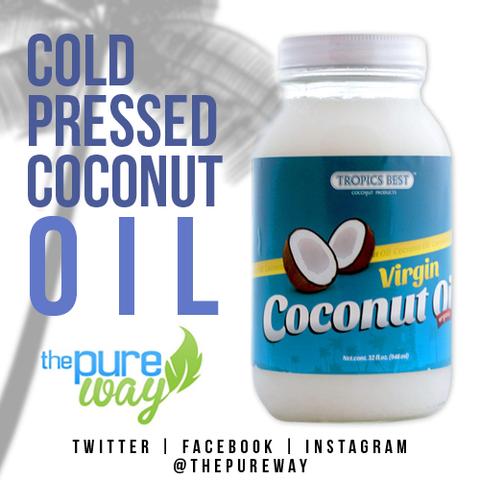How to Choose the Right Coconut Oil
"What type of Coconut Oil should I buy?"
We make decisions all day long and adding another one isn’t really in our todo list.
For many of us, standing in the coconut section at the grocery store, the sheer number of options makes choosing the right coconut oil a daunting task.
To make it easy for you, we put together a little guide to help you find exactly what you’re looking for (if you want the list, just scroll down to the bottom).
1—Organic vs. Nonorganic
This one is easy—unless you know exactly how and where your coconut oil is being produced, it goes without question that we advise all of our friends, family, and clients to purchase certified organic coconut when feasible.
There are products which are organically grown without the certification on the label but there are far more products that are genetically modified and adulterated.
Aside from being much tastier, organic coconut oils are pesticide and herbicide free, which is super important because these are often fat soluble chemicals that our bodies aren’t always able to process out.
2—Refined vs Unrefined
This may be the single most important factor to take into consideration when determining which type of coconut oil is best for you.
Refined Coconut oil is exactly what it says, re-fined. This process uses chemicals and high heat to allow for mass production of Coconut Oil. The issue with this process is that most of the MCTs and the nutritious aspects of coconut oil are destroyed and the health bolstering properties are gone. Refined or Hydrogenated oil is typically much cheaper and more widely available than pure, organic coconut oil.
Unrefined or Raw oil is far superior to refined oils due to the fact that the molecular structure has not been altered or damaged. There are no added chemicals, or adulterated materials and the process is completed at a low temperature to ensure that all of the healing properties are left intact.
3—Virgin vs Extra Virgin vs RAW vs RBD
When it comes to coconut oil, “Virgin” and “Extra Virgin” are the same—so don’t let the label fool you!
“Virgin” and “RAW” are both unrefined coconut oil. They both refer to keeping the coconut oil intact and not altered from its natural state. The difference between them is the process... sort of. You see, RAW is always Virgin because it’s pure and unadulterated but Virgin isn’t always RAW because it can be processed with heat.
RBD or Refined, Bleached, and Deodorized is a method used today because it is cost effective and time efficient for mass produced coconut oil. It prolongs shelf life and serves as an industry favorite in many cosmetic products but it is highly adulterated, loaded with chemicals, and has little to no nutritional value.
We suggest always choosing RAW when you can because you can be guaranteed that it has the least amount of processing.
4—Cold Pressed vs Expeller Pressed
Cold Pressed Coconut Oil is unequivocally the champion of Coconut Oils. There are many ways to cold press something, both by hand and by machine. The method most frequently used today is a mechanical centrifuge process which involves no heat, and produces unadulterated, pure coconut oil. This process produces a mild, great tasting, delectable coconut oil which possesses an array of healing properties.
Expeller Pressed Coconut oil is a good 2nd option to cold pressed oil. Expeller pressed oil is a process in which a low amount of heat, typically from 120 – 210 °F (49 – 99 °C), and high pressure will be utilized to extract the oil. Expeller pressed oil tends to have more of a coconut taste since heat is added.
5—Glass Container vs Plastic Container
Don’t go through all the trouble of choosing the perfect coconut oil, only to be turned out by the packaging. Choose glass.
Any company that cares about their coconut oil product (or any product, really) wouldn’t put their oil in a plastic container. Concentrated oils leach chemicals from any type of plastic, even BPA-free. Plasticizers and other chemicals in plastics are known to be estrogenic at least, if not carcinogenic.
Glass can be recycled and reused efficiently and safely, unlike plastic. We should all play our part in using less plastic.
The Verdict
Next time you’re looking at the shelf, look for: organic, unrefined, raw, and cold pressed in a glass container.
We could always save you the trouble though, because Tropic’s Best is exactly that: USDA Certified Organic Cold Pressed Raw Coconut Oil.
Because here at ThePureWay, we don’t skimp on quality. We choose health—of our community and of our planet. We vet every company that you see on our site for sustainability and quality so you don’t have to add another decision to your to-do list.
Stay pure.
ThePureWay


0 comments